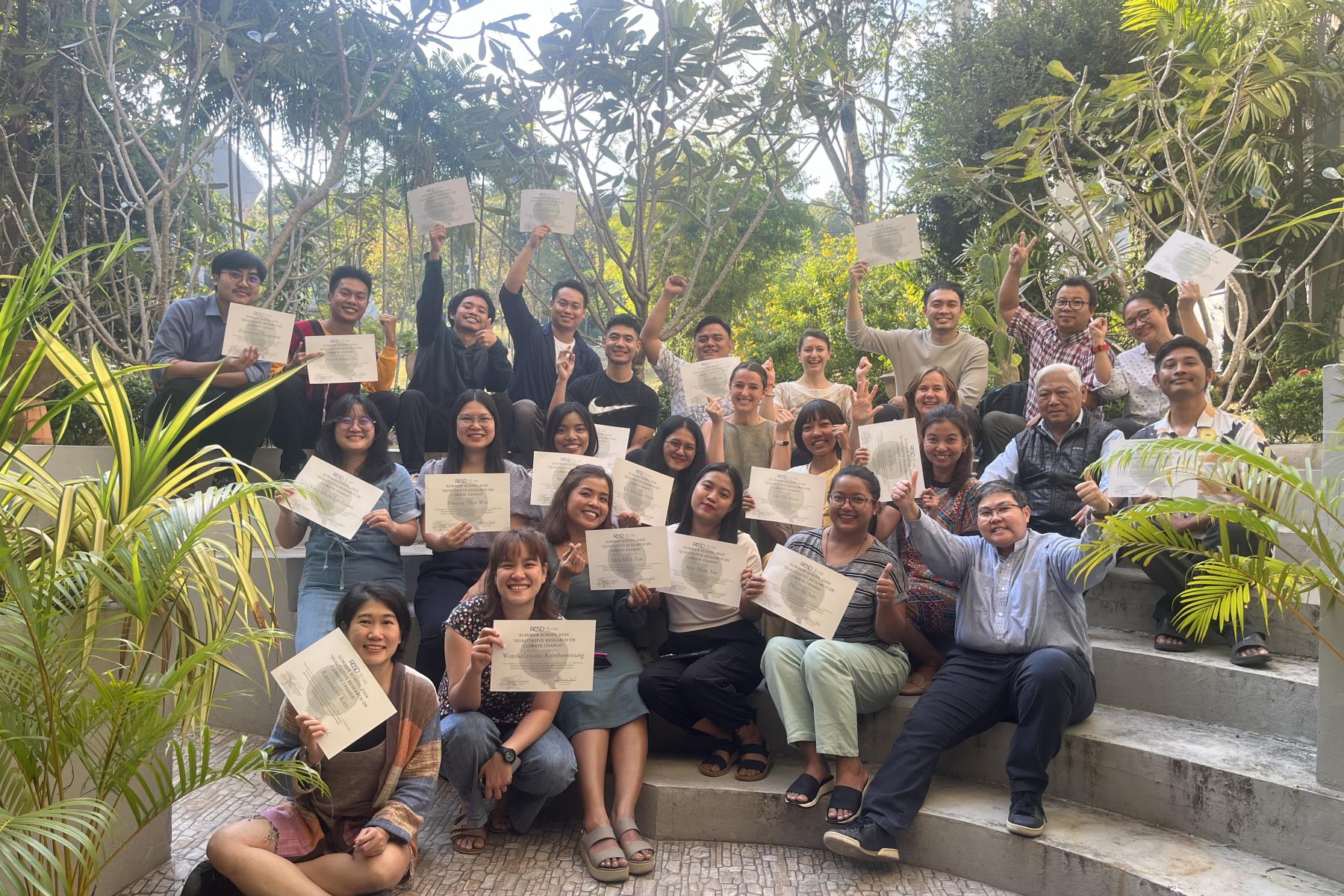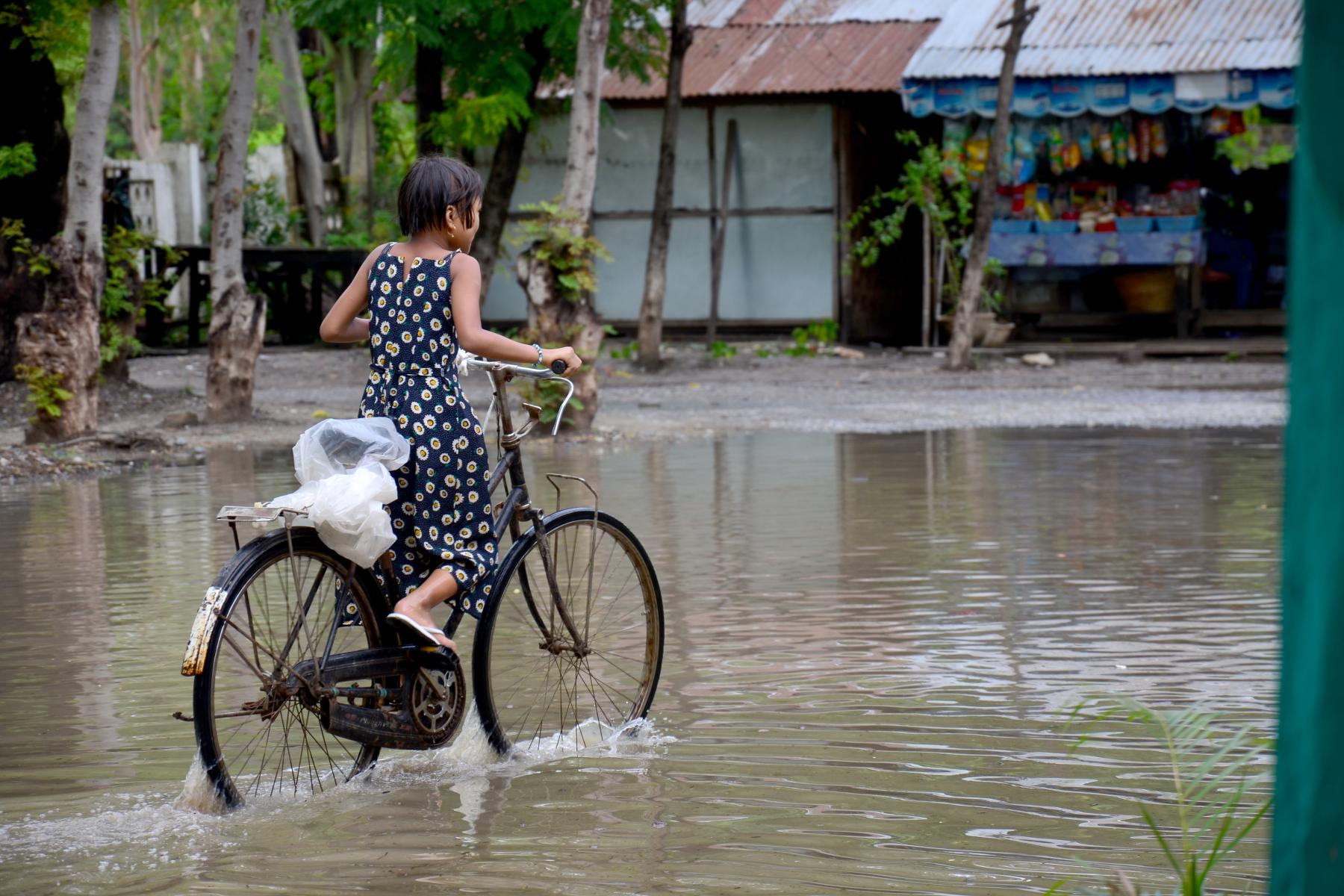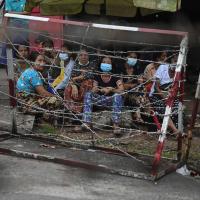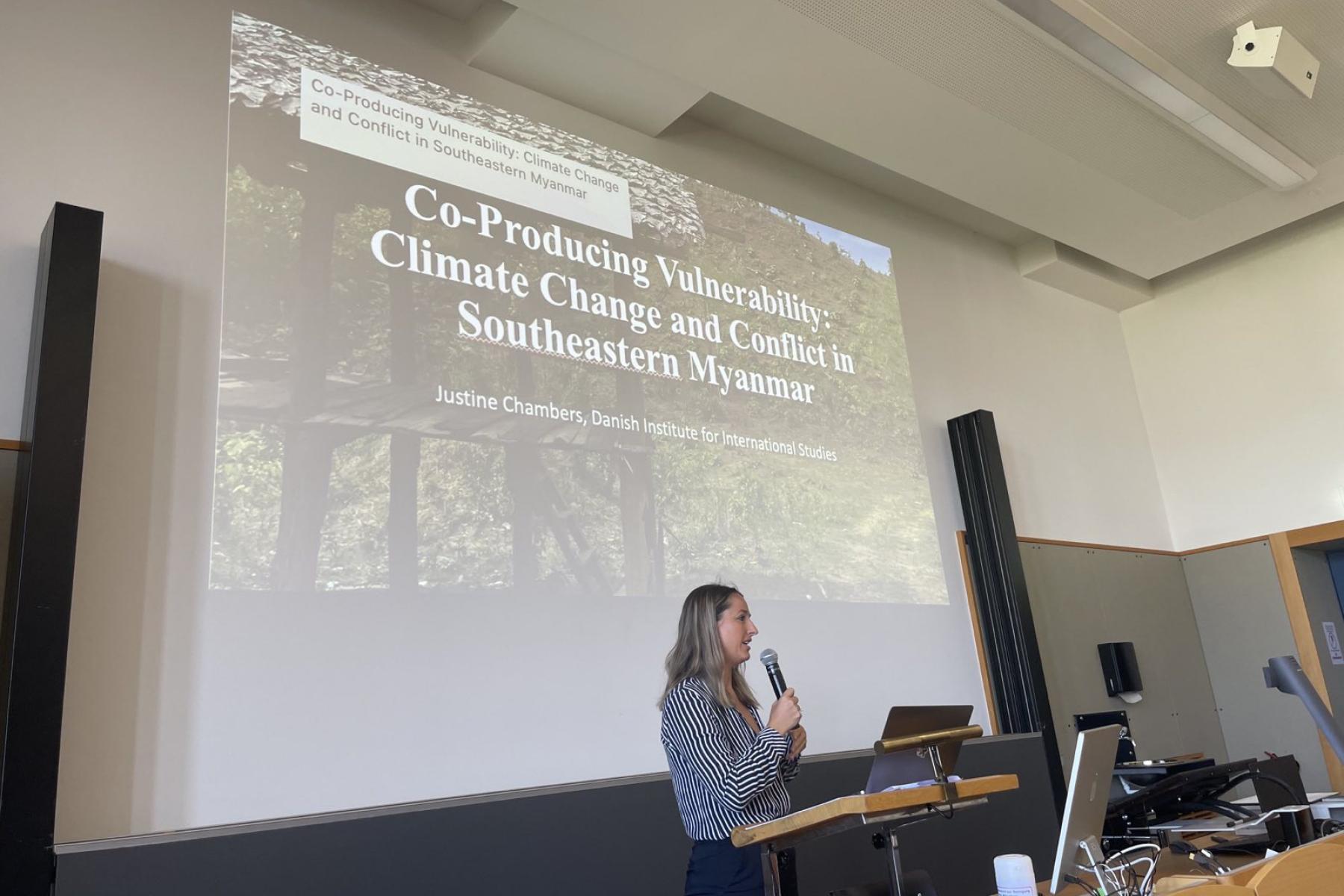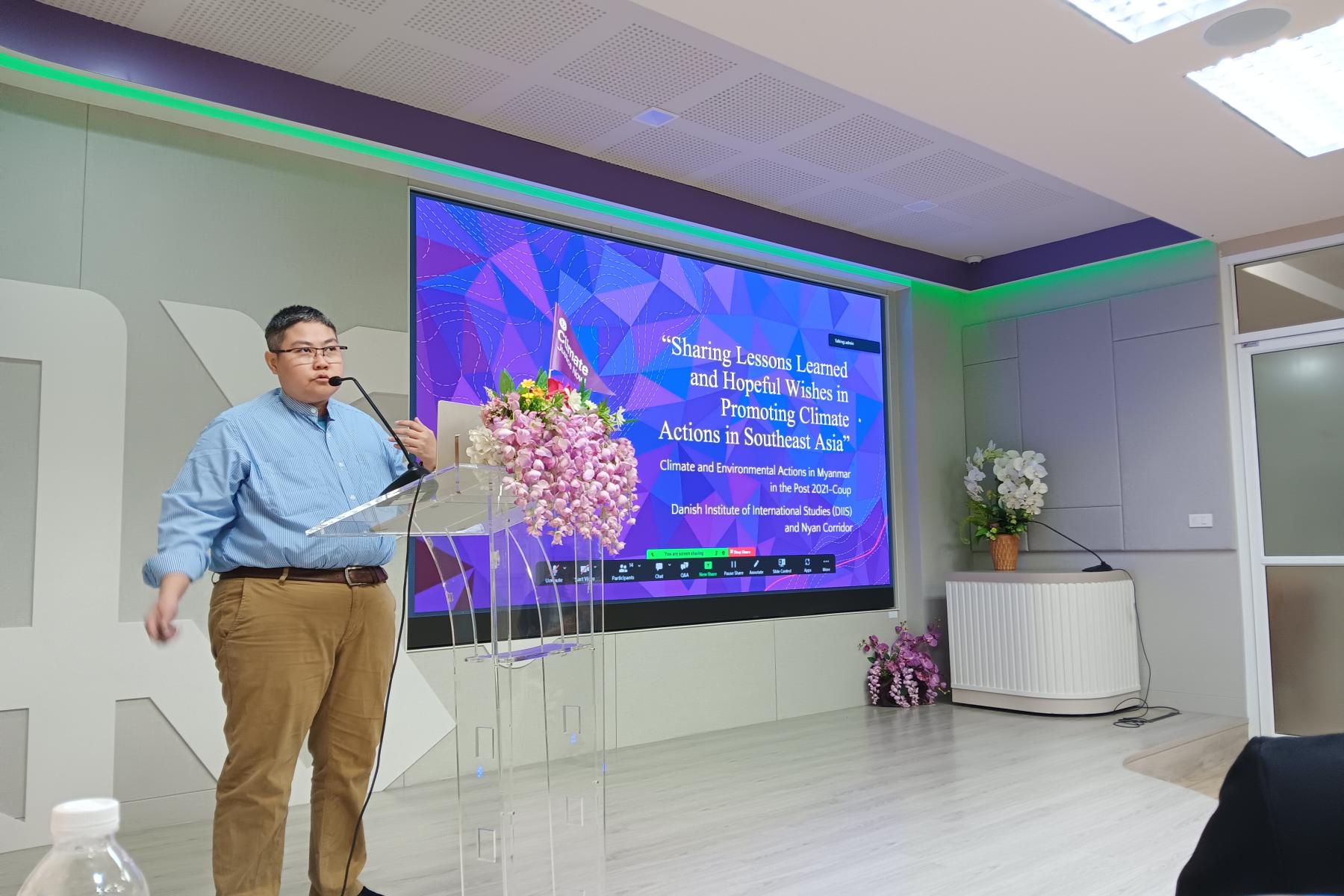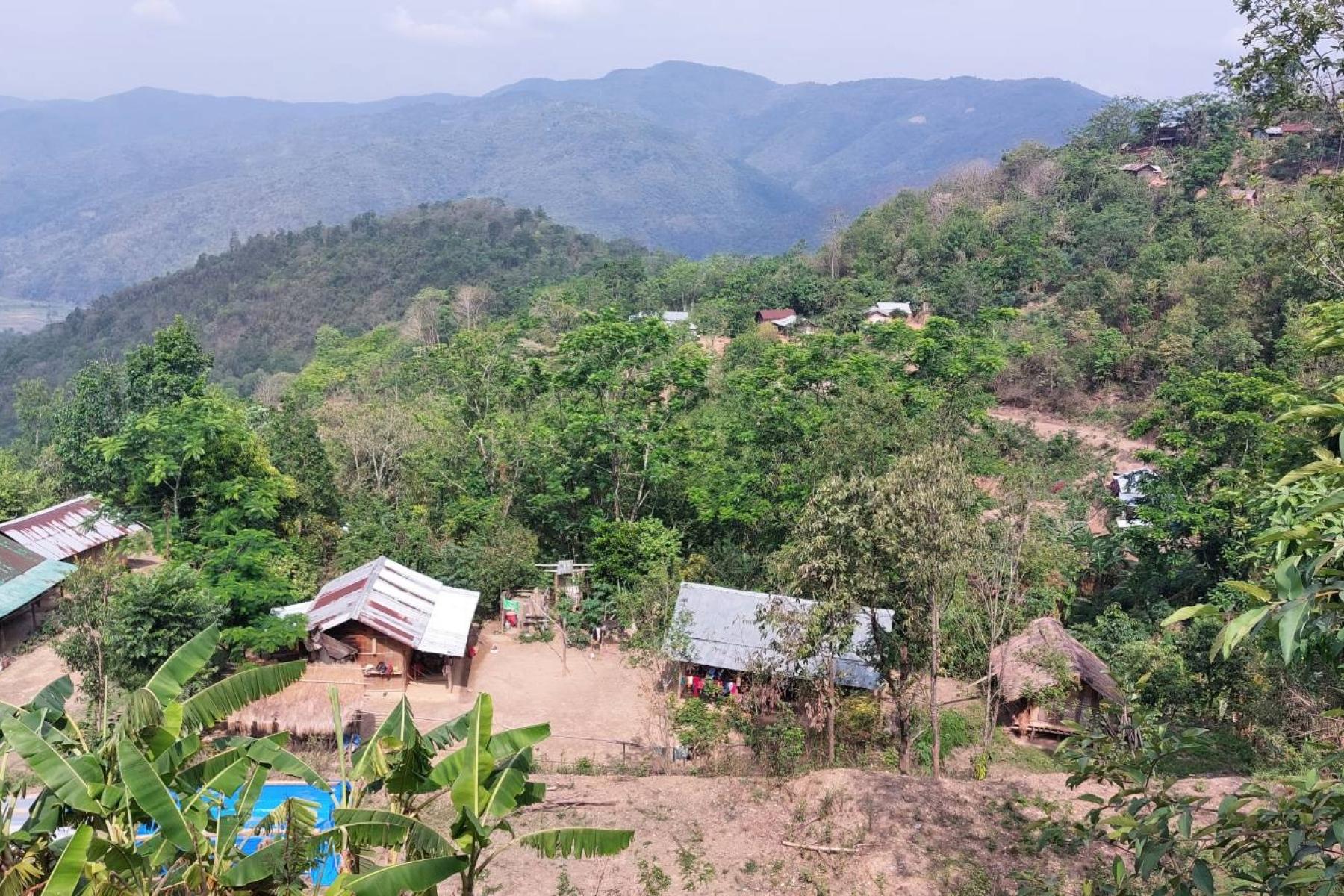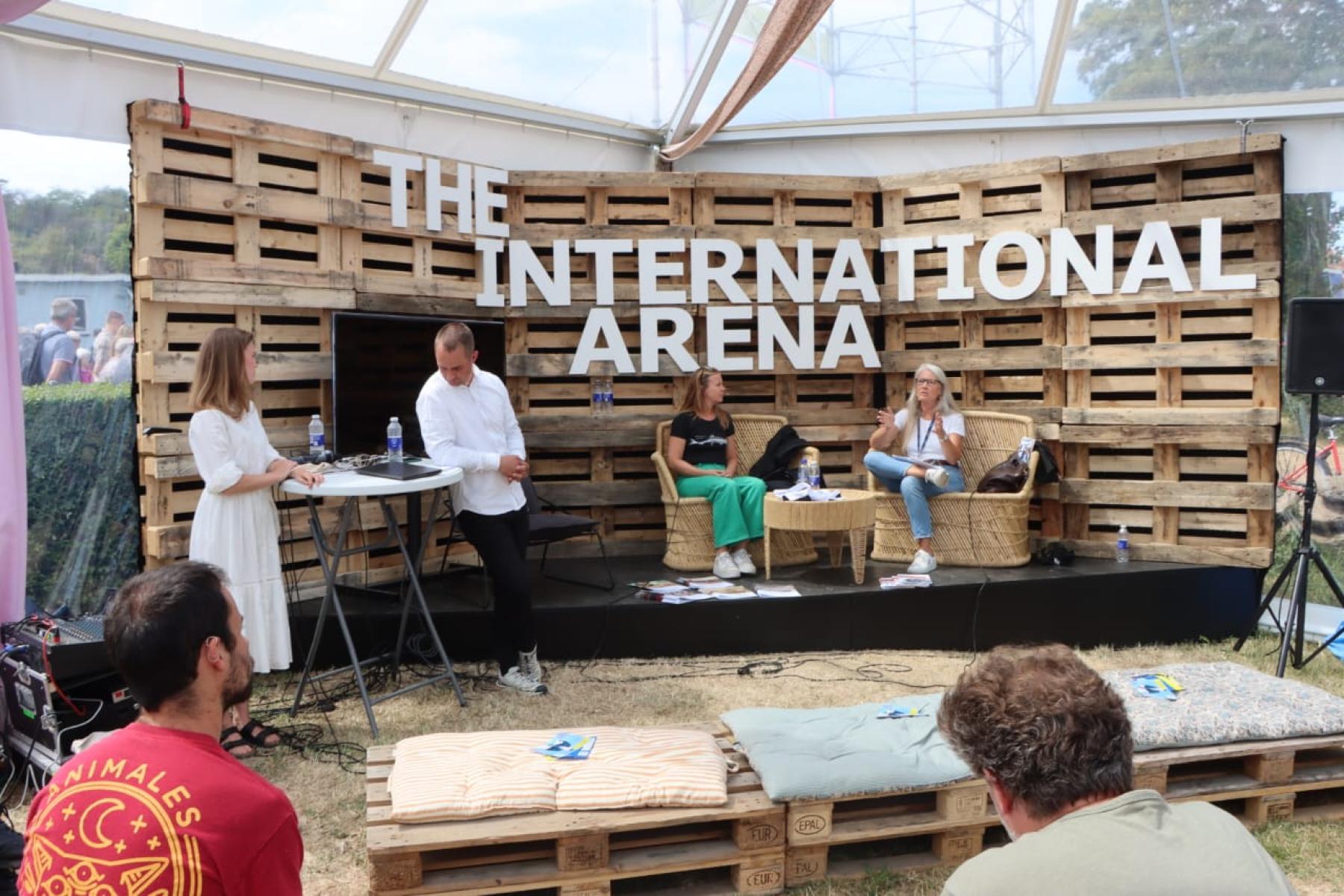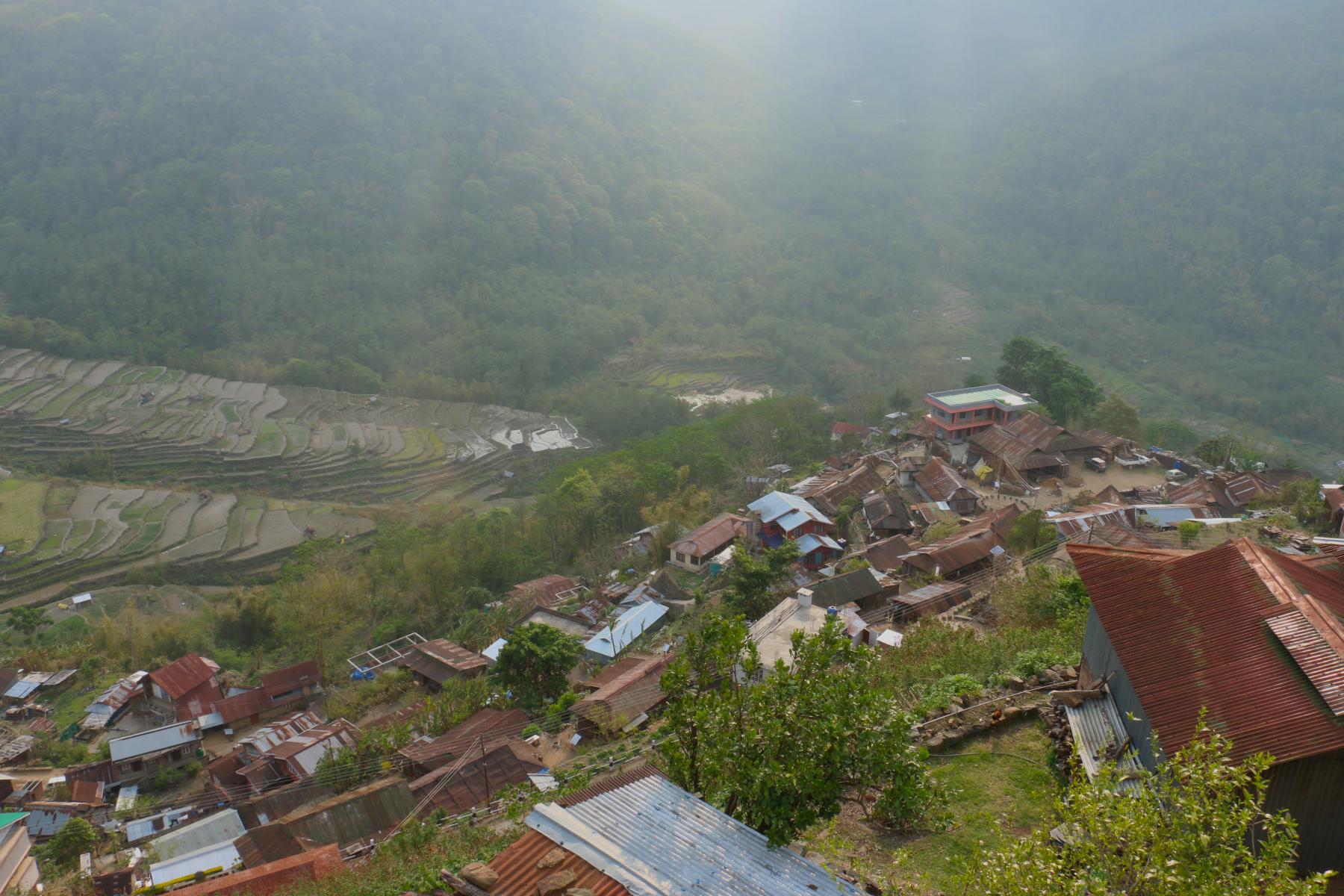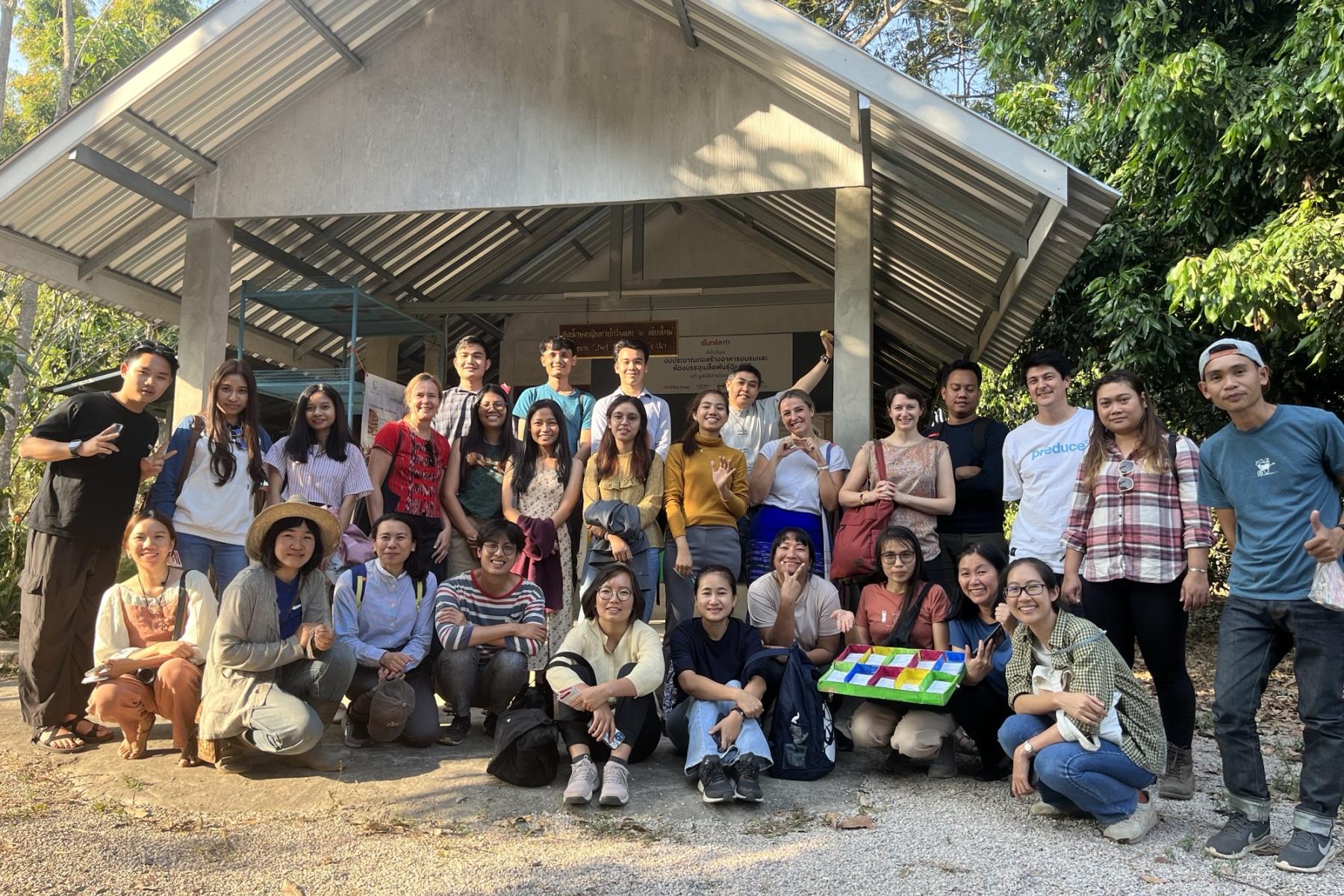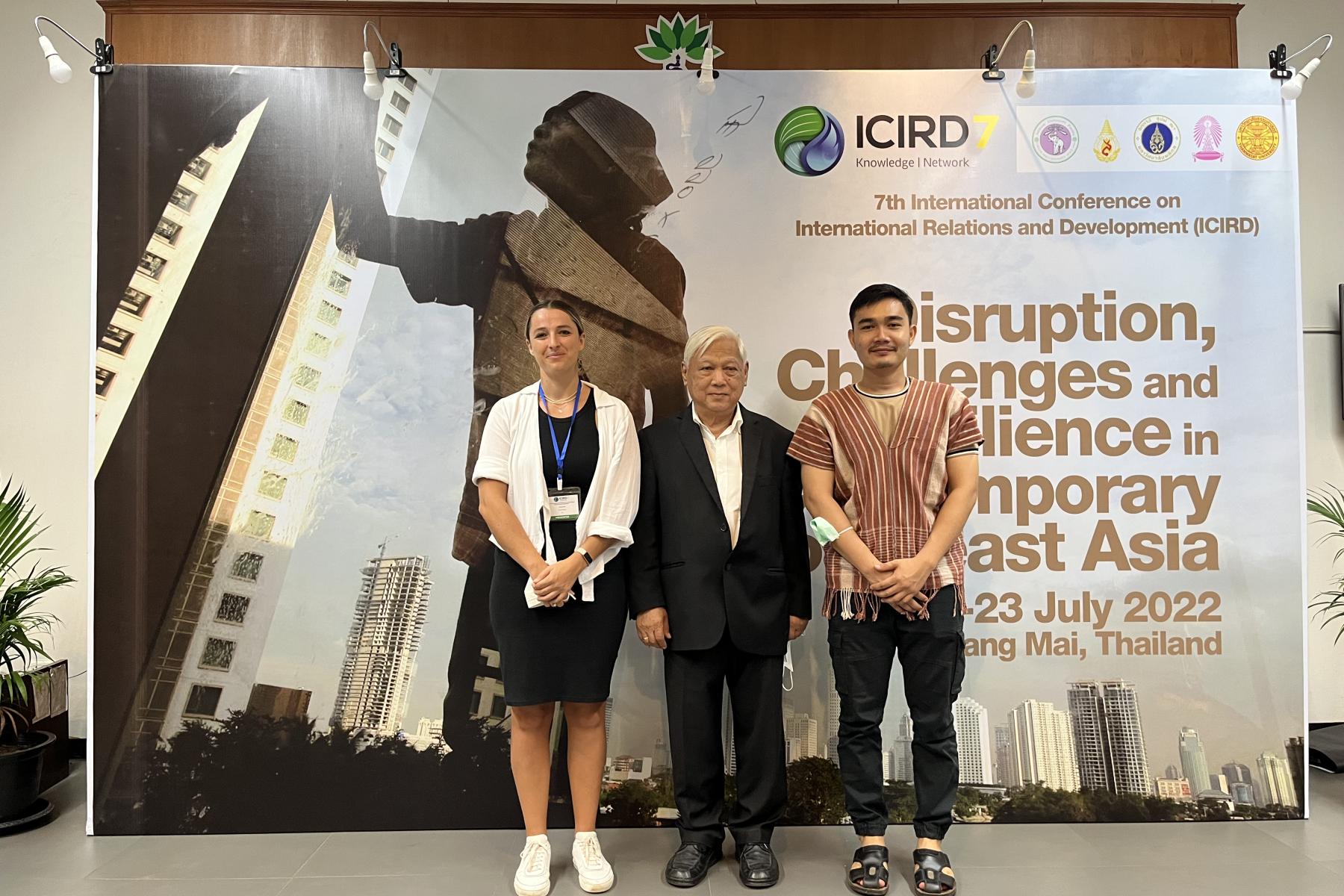MyCClimate - Myanmar: Climate Actions, Conflict and Peacebuilding
How is climate change understood and dealt with in contested political contexts with ongoing violent conflict? MyCClimate conducts in-depth, qualitative studies of the linkages between climate change (in)actions and conflict dynamics in Myanmar.
The MyCCLimate project (2021-2026) produces new empirical knowledge on how local communities perceive and adapt to climate change and how state actors, civil society organizations and political movements across Myanmar and its border regions address climate change within the interlinked fields of environmental conservation, natural resource use, energy, and pollution. The research combines digital ethnographic methods with in situ qualitative fieldwork in the Thai-Myanmar and Indo-Myanmar border regions in collaboration with civil society organizations and community researchers.
Theoretically, the project deepens existing analysis of the climate-conflict nexus by investigating the various ways that identity politics and a plurality of institutions shape actions and discourses linked to climate change issues within contested political contexts with ongoing violent conflict. This will be done by focusing on different topical areas like conservation, agrobusiness, renewable energy, weather, and mining, as well as by researching diverging policies, actions, and norms of different institutional actors. We for example explore state framings of climate change and investments affecting the environment, and we study non-state environmental activism centered on climate justice for the poor and preservation of indigenous land use and management. The findings of the project feeds into policy discussions and international climate change support that focus on developing more context-specific, user-oriented, and conflict-sensitive climate change actions.
The project builds institutional and individual research capacity through PhD and Master scholarships and extensive training courses with Myanmar and border-region researchers on climate change, methodologies, and academic writing skills. A core part of the project is also to train community researchers to co-produce knowledge of local perceptions and ways of adapting to climate change. Theoretical and empirical findings will be disseminated through international academic publications, policy briefs, participation in international conferences, and online webinars, and stakeholder dialogue meetings.
The project is a partnership between the Danish Institute for International Studies, the Nyan Corridor, the Regional Centre for Social Science and Sustainable Development (RCSD) at Chiang Mai University (Thailand), and the Highland Institute in northeast India. In addition, Marianne Mosberg is an affiliated PhD Candidate of MyCCLimate, enrolled at the Department of International Environment and Development Studies (Noragric) at the Norwegian University of Life Sciences (NMBU). Her thesis focuses on the politics of climate change responses, conflict dynamics and differential vulnerability patterns in Southeastern Myanmar prior to the 2021 military coup. The research partnerships include joint training activities, data collection, dissemination and publications, partly through the use of online resources, platforms and technologies.
The project is financed by Danida and is coordinated by DIIS senior researcher, Helene Maria Kyed. It builds off the connections and research of the Everyday Justice project.
MyCClimate Reading Group (Zoom)
MyCClimate researchers meet fortnightly to present on and discuss inter-disciplinary scholarly literature and key concepts related to climate change, natural resource management, land governance and conflict in Myanmar. Topics included: climate change in Myanmar; the climate-conflict nexus; climate change, conflict and land; Indigenous conservation and concepts of sovereignty; green territoriality and green grabbing; climate change adaptation; hydro power and renewable energy in conflict areas; climate justice; lessons from Southeast Asia; gender and climate change; institutional approaches to climate change and migration. External scholars are also invited to give talks to the team and help unpack key theoretical concepts relevant to the research project.
Digital Security Training (March-April 2022, Online)
Experts were invited to facilitate a course on digital security for the MyCClimate team. The training included information on the use of communication technologies and safety in the field.
Climate Change in Myanmar: Stakeholder Information Sharing Dialogue (18 March, RCSD, Chiang Mai University)
The project’s researchers from DIIS and Nyan Corridor invited a selection of scholars, civil society and environmental activists and ethnic leaders in Chiang Mai to discuss the project objectives and research questions, and some preliminary ideas about the methodology and concepts. The aim of the dialogue was to bring together environmental activists, civil society groups, ethnic organisations and researchers, whose work focuses on climate change adaptation, natural resource management, land rights and indigenous conservation efforts in Myanmar.
Digital Ethnography Workshop (January 2022, Online)
Over the course of one month, the MyCClimate researchers met three times in a workshop focused on digital ethnography. The course was facilitated by Dr Hilary Faxon, who has extensive experience using digital ethnography in her own research on Myanmar, especially under the context of COVID-19 and the Coup. The purpose was to get practical training and theoretical knowledge in the use of digital ethnographies and how it might applied in the MyCClimate project. We looked at the theories behind digital ethnography methods, the concrete data collection tools that are used, and discussed issues related to security and ethical dilemmas. All members of the MyCClimate project participated in the workshop and developed their own case studies for further research.
Research and activites
-
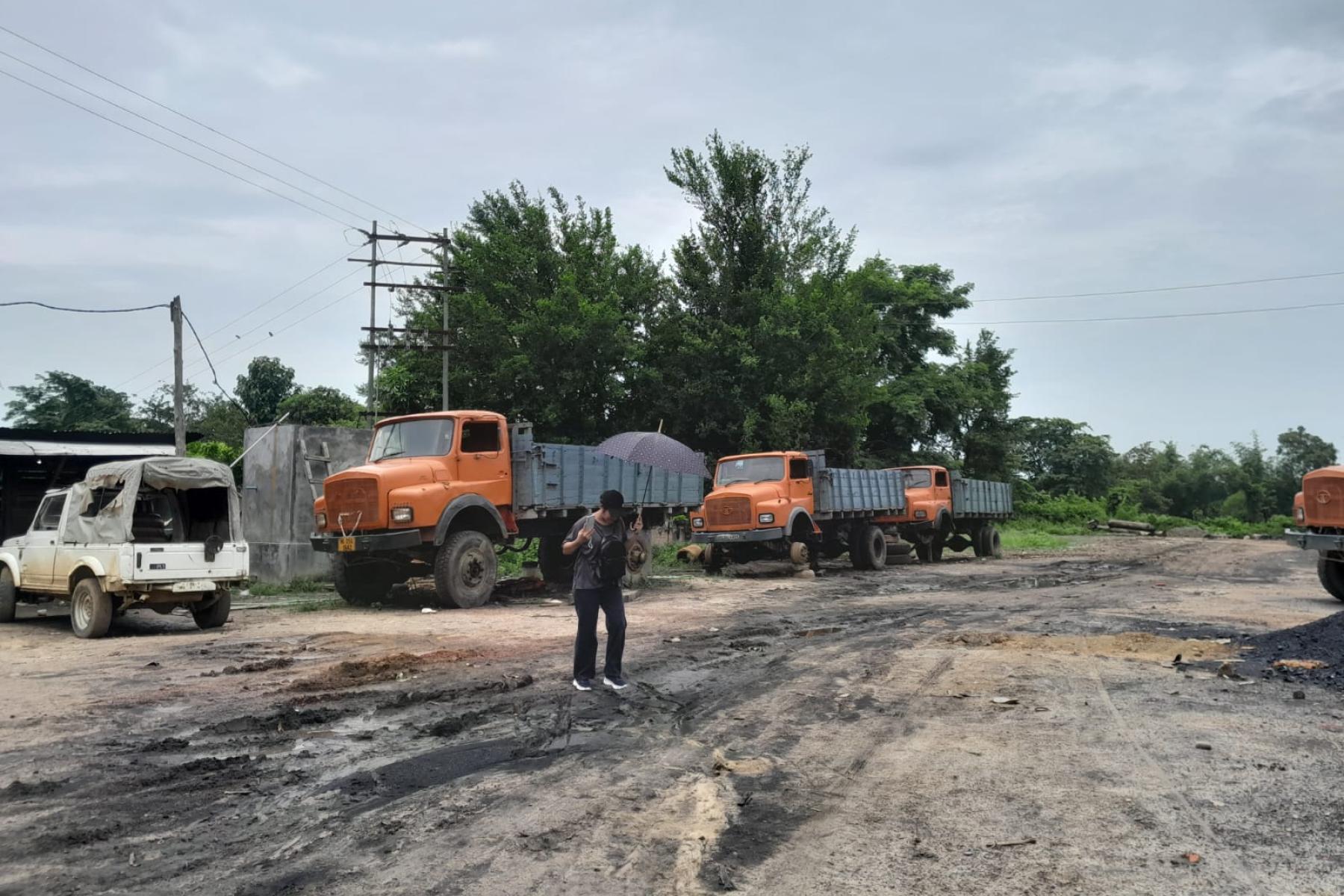 Photo/illustration by Tarini ManchandaDIIS Blog2023Reflections from fieldwork in Wokha District, NagalandTarini Manchanda
Photo/illustration by Tarini ManchandaDIIS Blog2023Reflections from fieldwork in Wokha District, NagalandTarini Manchanda -
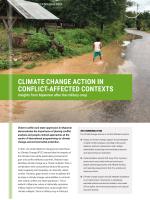 DIIS Policy Brief2023Insights from Myanmar after the military coupHelene Maria Kyed & Justine Chambers
DIIS Policy Brief2023Insights from Myanmar after the military coupHelene Maria Kyed & Justine Chambers
Contact



